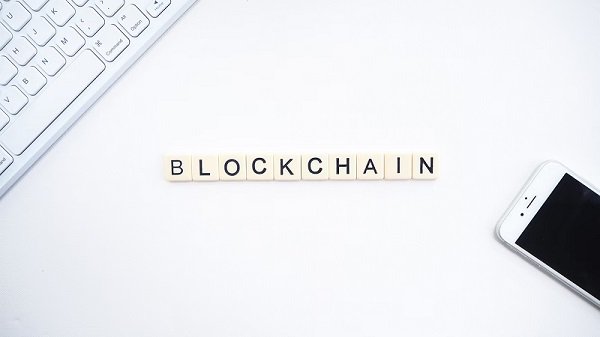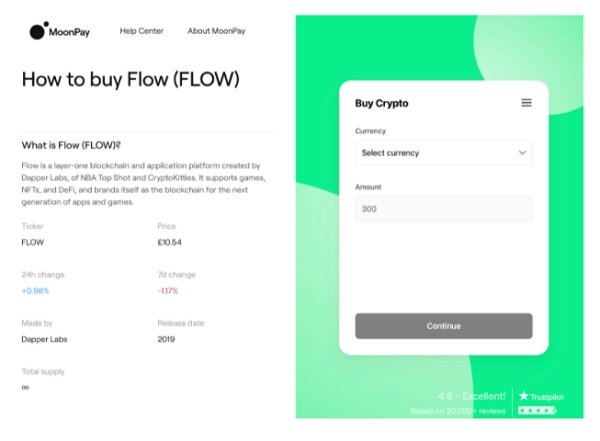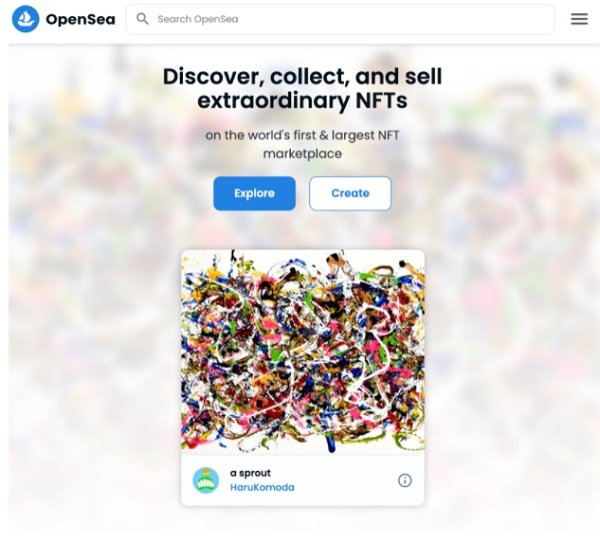How to Choose the Best Blockchain for NFT Development
Brian Wallace, Founder & President, NowSourcing
If there is one thing that is taking the blockchain-cryptocurrency domain by storm at the moment, it is non-fungible tokens, also known as NFTs. In fact, in 2021, their market cap has crossed by $19 billion, rising by more than 1785 percent.

As a consequence, the NFT marketplaces, where digital assets can be bought and sold, are becoming a great means of generating revenue, offering outstanding ROIs.
NFT marketplace development businesses are increasingly jumping on the bandwagon, offering a wide range of diverse solutions. We have also seen that a lot of blockchain software development enterprises are searching for the best ways to leverage NFTs.
From functionality to cost and security, there are a number of critical elements that are at play when it comes to developing a robust NFT marketplace. Each of these demands considerable expertise and skill, lest project owners and end-users are going to be vulnerable and exposed to different risks.
Considering that, we are going to take a look at how you can select the best blockchain for NFT development so you can get a better understanding.
What is a non-fungible token (NFT)?
Before we take a look at the different elements that must be considered when choosing a blockchain for NFT development, it is important to establish what a non-fungible token is.
NFTs are unique. They represent unique collectibles or items, which can include anything from gaming assets to paintings and digital art. The term non-fungible basically means that something is unique and you cannot replace it with something else.
For instance, bitcoin is a fungible item, as you can trade it for another bitcoin and you are going to end up with exactly the same thing. However, if you have a one-of-a-kind trading card, this is non-fungible. If you trade the card for another card, you will end up with the same thing.
These tokens also have different properties in the marketplace in comparison to other tokens. For instance, when compared to a fungible crypto-token, an NFT is not going to have the same protocol structure.
At a very high level, most NFTs are part of the Ethereum blockchain. Ethereum is a blockchain that offers support for NFTs while having its own cryptocurrency, Ether, which is very much like dogecoin or bitcoin.
NFT development use cases
If you are thinking about creating an NFT for your company, then it is important to know about the different NFT development use cases.
There are a lot of different use cases for non-fungible tokens, yet only some are going to be suitable for companies looking to boost their profits.
Here are some examples to consider:
- Entertainment NFTs
- Logistics NFTs
- GIF NFTs
- Video NFTs
- Music NFTs
- Collectible NFTs
- Ticketing NFTs
- Real estate NFTs
- Gaming NFTs
- Digital art NFTs
What should you consider when looking for the best blockchain for NFT development?
There are a number of parameters that must be considered while searching for the best blockchain for NFT marketplace development. This includes the following:
Possibility of forking
The uniqueness and rarity of NFTs make them so valuable. Hard forks can pose significant threats to these aspects, as the sanctity of NFTs is put to question if they are duplicated.
Asset ownership is on the line here. Plus, NFTs on the ‘old’ chain may end up with their value eroded fully. Given this, it is vital to make sure that NFTs and NFT marketplaces are created on blockchains that are fork-proof.
Smart, robust contracts
The robustness of its smart contracts is a key contributor when it comes to the overall security provided by blockchain technology. Writing code that is bug-free, clean, and secure is critical for this reason.
Smart contracts need to be subject to stringent and rigorous testing, making sure that you experience the highest level of efficiency and resilience. Only then can NFT marketplace users and developers be sure about the lowest possible risk of downtime, hacks, and breaches.
Token development and transaction cost
In addition to the points that we have discussed so far, something else that you need to consider is cost-effectiveness. You need cost-efficient solutions when making NFT-based transactions, as they are not always going to involve trading in art pieces worth millions of dollars.
Instead, micro-transactions can make up a large part of NFT-based transactions, and they can often include the likes of card games, digital collectibles, and in-game digital assets.
For instance, we have seen FLOW developed as a layer-one blockchain and application platform for games and apps. You can get FLOW on Moonpay if this is something you are interested in.

Naturally, no one is going to be willing to pay huge fees for these transactions. Consequently, you will need to lower costs are much as possible to ensure adoption and usability.
In turn, there is a need for optimized blockchain development expenses, especially when it comes to NFT marketplaces. Therefore, the fee structure used by the blockchain for NFTs must be considered carefully. There are some that are absent of fees altogether.
Security
Of course, we cannot talk about the different factors that you need to consider when looking for a blockchain for NFT development without mentioning the all-important factor of security.
Blockchains can be vulnerable to a number of different attack vendors, including man in the middle attacks and fifty-one percent attacks.
Platforms that have proof of work consensus mechanisms tend to be much more susceptible to attacks whereby attackers are able to attain control over most of the computational power of the network.
Some of the inevitable outcomes of an attack like this include loss of access, data, and money. Ultimately, decentralization is compromised.
As a consequence, it is imperative to search for a blockchain that has mining-free, alternative consensus mechanisms, for example, proof of stake.
Transaction speed
Last but not least, you must consider the speed of the transaction. Speed is one of the main determinants when it comes to the success of a digital system, especially with regard to the transfer of value and domains involving storage.
However, speed should not come in exchange for low levels of security or high costs, which is often the case for a number of blockchains, so this is something you are going to need to keep in mind.
Faster finality means that attackers are going to have a lower period of time, as blockchains tend to be immutable by their definition.
If you are able to find a blockchain that is able to achieve this while upholding decentralization, there is no denying that you have found the perfect place for NFT development.
What are some of the top blockchains for NFT development?
Now that we have taken a look at some of the different elements to consider when it comes to finding the best blockchain for NFT development, we will assess some of the options that best fit the bill:
Flow
It is only right that we begin with Flow, as we mentioned this blockchain network early. This is a developer-friendly blockchain, especially for building marketplaces and digital assets.
Scalability is what the platform strives for, via smart contracts, which are upgradeable and have been written in the Cadence Programming Language.
Furthermore, there is a multi-node architecture on Flow for collection, verification, execution, and consensus.
Ethereum
We are sure you were expecting to see Ethereum on the list, as it is the most popular and widely used blockchain for NFT development at present. There are a number of leading NFT marketplaces that leverage the Ethereum network, including Decentraland, SuperRare, OpenSea, and Rarible.

One of the benefits of Ethereum is the fact it is extremely easy and simple. Often, all you need to do is upload a file and fill in some details.
Tezos
A final option you may want to consider is Tezos, which is a blockchain that has an NFT marketplace known as TRUESY. The main focus of TRUESY is to lower carbon footprint.
The platform claims that it uses 2,000,000 times less energy when compared with other NFT platforms because it has optimized CPU usage.
Therefore, if the environment is something you care about, you may want to consider Tezos as a great partner in your efforts and the eco-friendly route when it comes to NFT development.
Final words on choosing the best blockchain for NFT development
As you can see, there is a lot that needs to be considered when you are looking for the best blockchain for NFT development.
From security to speed, it is important to carefully consider all of the different elements that we have mentioned above so that you can make sure your choice of blockchain is a robust and efficient one.
 About the Author: Brian Wallace is the Founder and President of NowSourcing, an industry leading infographic design agency in Louisville, KY and Cincinnati, OH which works with companies ranging from startups to Fortune 500s. Brian runs #LinkedInLocal events, hosts the Next Action Podcast, and has been named a Google Small Business Adviser for 2016-present. Follow Brian Wallace on Linked
About the Author: Brian Wallace is the Founder and President of NowSourcing, an industry leading infographic design agency in Louisville, KY and Cincinnati, OH which works with companies ranging from startups to Fortune 500s. Brian runs #LinkedInLocal events, hosts the Next Action Podcast, and has been named a Google Small Business Adviser for 2016-present. Follow Brian Wallace on Linked

